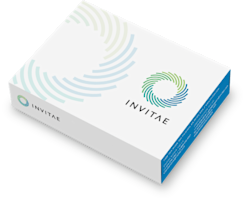
Invitae Leukodystrophy and Genetic Leukoencephalopathy Panel
Test code: 55002 •
Test description
The Invitae Leukodystrophy and Genetic Leukoencephaly Panel has been developed to offer a broad, symptom-based approach to diagnosing heritable conditions that affect the white matter of the central nervous system, with or without peripheral nervous system involvement. This panel also evaluates genes associated with conditions that do not fit the strict definition of leukodystrophy, but nevertheless affect the white matter of the brain, such as certain inborn errors of metabolism, congenital muscular dystrophies with significant white matter involvement, progressive neurodegenerative disorders, and other neuronal disorders that affect myelination. Multiple nuclear-encoded genes associated with mitochondrial dysfunction that may result in white matter abnormalities have been included, however mitochondrial DNA is not evaluated by this panel. Conditions associated with repeat expansions are not included on this panel.
This panel includes genes that confer risk for both an autosomal recessive leukodystrophy and an autosomal dominant increased risk for cancer (i.e. FH, MDH2, PTEN, SAMD9L, SDHA, SDHB, SETBP1, SHOC2, TSC1, TSC2). This panel includes genes associated with both childhood onset and adult onset conditions, such as CSF1R, AARS, AP5Z1, SQSTM1 and PDGFRB. When ordering this panel, you can de-select these genes to exclude them from the analysis.
Ordering information
Turnaround time:
10–21 calendar days (14 days on average)New York approved:
YesPreferred specimen:
3mL whole blood in a purple-top EDTA tube (K2EDTA or K3EDTA)Alternate specimens:
Saliva, buccal swab, and gDNA are also accepted.Learn more about specimen requirementsRequest a specimen collection kitClinical description
To view the complete clinical description of this panel, click here.
Assay information
Invitae is a College of American Pathologists (CAP)-accredited and Clinical Laboratory Improvement Amendments (CLIA)-certified clinical diagnostic laboratory performing full-gene sequencing and deletion/duplication analysis using next-generation sequencing technology (NGS).
Our sequence analysis covers clinically important regions of each gene, including coding exons and 10 to 20 base pairs of adjacent intronic sequence on either side of the coding exons in the transcript listed below, depending on the specific gene or test. In addition, the analysis covers select non-coding variants. Any variants that fall outside these regions are not analyzed. Any limitations in the analysis of these genes will be listed on the report. Contact client services with any questions.
Based on validation study results, this assay achieves >99% analytical sensitivity and specificity for single nucleotide variants, insertions and deletions <15bp in length, and exon-level deletions and duplications. Invitae's methods also detect insertions and deletions larger than 15bp but smaller than a full exon but sensitivity for these may be marginally reduced. Invitae’s deletion/duplication analysis determines copy number at a single exon resolution at virtually all targeted exons. However, in rare situations, single-exon copy number events may not be analyzed due to inherent sequence properties or isolated reduction in data quality. Certain types of variants, such as structural rearrangements (e.g. inversions, gene conversion events, translocations, etc.) or variants embedded in sequence with complex architecture (e.g. short tandem repeats or segmental duplications), may not be detected. Additionally, it may not be possible to fully resolve certain details about variants, such as mosaicism, phasing, or mapping ambiguity. Unless explicitly guaranteed, sequence changes in the promoter, non-coding exons, and other non-coding regions are not covered by this assay. Please consult the test definition on our website for details regarding regions or types of variants that are covered or excluded for this test. This report reflects the analysis of an extracted genomic DNA sample. In very rare cases, (circulating hematolymphoid neoplasm, bone marrow transplant, recent blood transfusion) the analyzed DNA may not represent the patient's constitutional genome.
You can customize this test by clicking genes to remove them.
Primary panel
The Adult-Onset Leukodystrophy and Leukoencephalopathy Panel has been developed to offer a broad, symptom-based approach to diagnosing adult-onset heritable conditions that affect the white matter of the central nervous system, with or without peripheral nervous system involvement. This panel also evaluates genes associated with conditions that do not fit the strict definition of leukodystrophy, but nevertheless affect the white matter of the brain, such as certain inborn errors of metabolism, congenital muscular dystrophies with significant white matter involvement, progressive neurodegenerative disorders, and other neuronal disorders that affect myelination. These genes were selected based on the available evidence to date. Adult-onset leukodystrophies and leukoencephalopathies are genetically heterogeneous, and broad panel testing allows for an efficient evaluation of many potentially relevant genes based on a single clinical indication. *Of note, this panel does not test mitochondrial DNA and does not detect conditions caused by repeat expansions.*
Question about billing?
Find answers